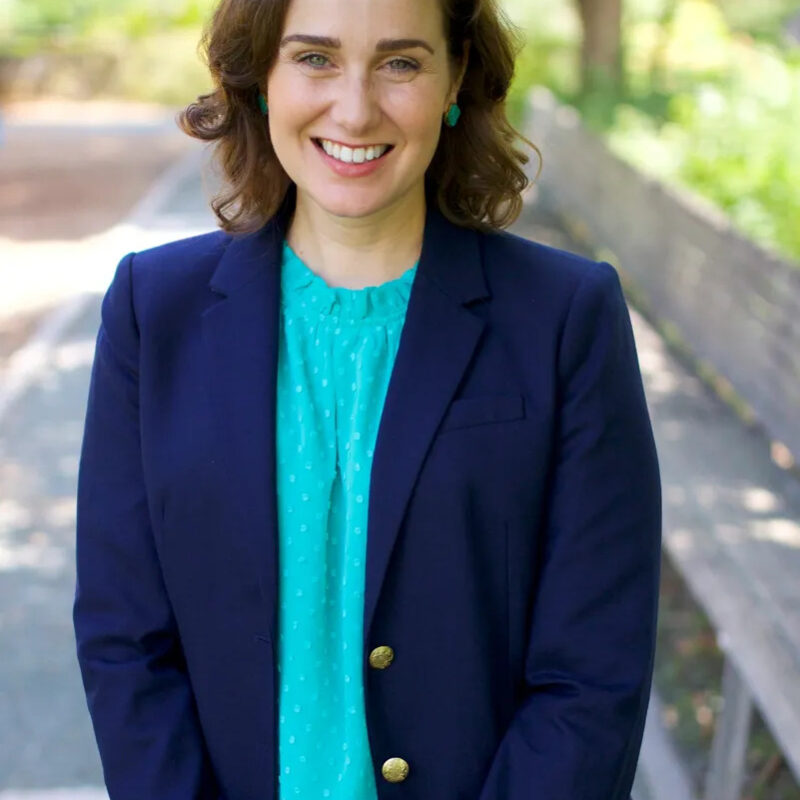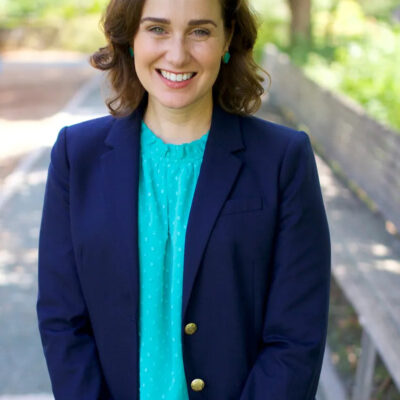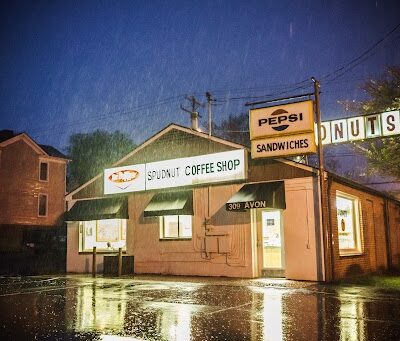UVA senior architecture student Serena Weaver spent last semester dreaming of an ideal menu for the Fine Arts Café in the School of Architecture. The decades old cafeteria was finally getting revamped. What if, instead of the normal plastic-tasting cafeteria food, its menu was organic—or even better, from local Virginia farms?
Ever since Weaver, a Californian, had come to Virginia for college, she has paid attention to the vibrant local food movement.
 Serena Weaver, a senior, interned this semester for UVA dining supplier Aramark, helping the company include more local and organic fare at the University. |
“It was also really interesting for me to see that foods grow according to seasons,” she says. “The whole idea of there being a scarcity and then an abundance.”
In December, Weaver was surprised to find out the Fine Arts Café was opening up with a sustainable menu, just like she had dreamed, all organic, and some of it local.
“The dean asked me to be the designer of the renovated space,” says Judith Kinnard, a longtime architecture professor at the University, “and during the process of conceiving what the new café would be like, it became clear we would need to think about the menu as well as the space itself.”
That led to meetings with Aramark, the national company that runs UVA dining services. “It was not originally their idea to have a local and organic menu, but when we brought up the subject, they were interested,” Kinnard says.
As the café prepared to open, Aramark was also approached by Weaver, who proposed a position to them: a student intern who would study greater sustainability for the University’s cafeterias.
“We’re trying to come up with sustainable dining guidelines for UVA so there’s a written document with what we want clearly outlined,” says Weaver, who filled the intern post this January. As such, she is the connection between concerned students and an interested provider.
“We’re getting salsa from Red Hill, tofu and soy sausage from Twin Oaks, beef from Polyface,” she says, naming some products from local farms. All three were recently available on April 21, when Newcomb Hall hosted its first Green Dining Event. In a side cafeteria, students shuffled through lines to receive the asparagus and soy sausage, sweet potato hash and scrambled eggs scooped in heaps onto their plates. Peanuts abounded, as did corn tortilla chips.
“I didn’t like what I was eating four years ago,” says Weaver. Thanks in part to her own efforts, she now has more to enjoy. On April 9, UVA switched to buying cage-free eggs from Glenwood Foods in Amelia County (that doesn’t include hardboiled eggs). This change will equal 16,000 dozen a year.
C-VILLE welcomes news tips from readers. Send them to news@c-ville.com.





